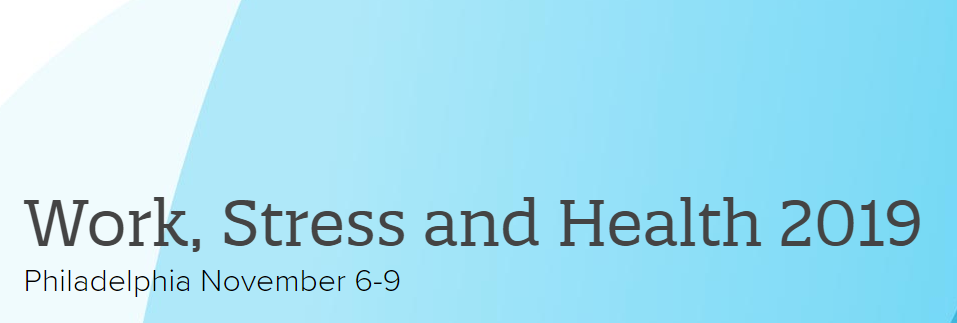
What is Work, Stress and Health?
Keynote Speakers

Jeffrey Pfeffer
Pfeffer is the Thomas D. Dee II Professor of Organizational Behavior at the Stanford Graduate School of Business where he has taught since 1979. Pfeffer is the author or co-author of 15 books on topics including power in organizations, managing people, evidence-based management and The Knowing-Doing Gap. His latest book, “Dying for a Paycheck: How Modern Management Harms Employee Health and Company Performance—and What We Can Do About It”, was published in March, 2018. Author of more than 150 articles and book chapters, he has won numerous awards for his scholarly research, including an Honorary Doctorate from Tilburg University in The Netherlands.
Pfeffer has taught seminars in 40 countries and has been a visiting professor at Harvard Business School, London Business School, Singapore Management University, and IESE in Barcelona. Prior to joining Stanford, he was on the faculty at the business schools at the University of California, Berkeley and the University of Illinois. Pfeffer has served on the board of directors of several human capital software companies as well as other public and private company and non-profit boards. Learn more about Pfeffer at his website.

Manal Azzi, PhD
Azzi is an occupational safety and health specialist at the International Labour Organization (ILO), currently based in Geneva. In her 15 years with the ILO, she has had the opportunity to supervise interventions around the world. Azzi currently leads a global project to improve occupational health and safety in micro, small and medium-sized enterprises, as well as overseeing the work on chemical safety and coordinating the World Day for Safety and Health at Work. One of her main roles is to manage the ILO’s activities on health promotion in the workplace including improved nutrition and the prevention of stress, violence and substance abuse.
Azzi holds a PhD in occupational health and safety (faculty of Health & Medical Sciences-University of Surrey, UK), a master’s in labour law, (University of Leicester), a master’s in nutrition, and a bachelor’s in environmental and public health sciences (American University of Beirut), and a degree in biochemistry, human physiology and health education (University of Sydney).
Can’t Miss Sessions

The future of work: Implications for occupational health and worker well-being

Opioids in the workplace, prevention and response
Participants will learn about the impact of the opioid crisis in the workplace, including research evaluating the impact by occupation and industry. This session will also cover interventions designed to combat opioid abuse in the workplace, such as educating providers, establishing dosing guidelines and regulations, and worker and employer training initiatives.

Unique factors related to stress and its outcomes in health care workers
Health care is a high-risk and high-stress industry. The well-being of health-care workers is of particular interest because it can impact not only the employees themselves in terms of injuries, burnout and turnover, but also the quality of patient care, including medical errors and mortality rates. This symposium will examine unique factors that play a part in the stress experience for health-care workers and its outcomes.
